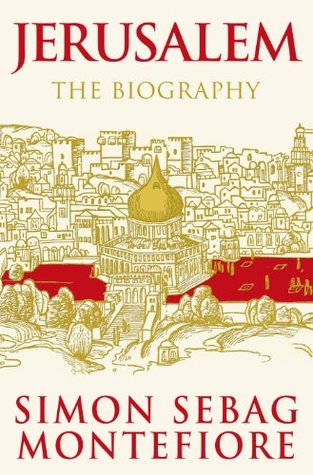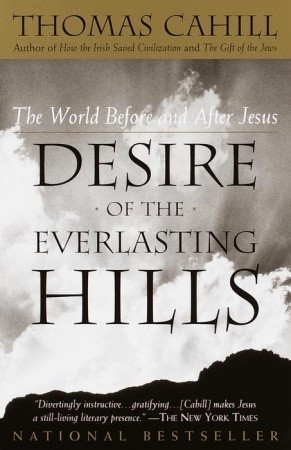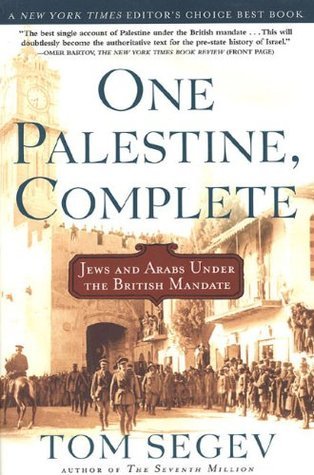
Jerusalem: The Biography
Book Description
A city where faith and ambition clash, where empires rise and fall amidst the echoes of ancient prayers. "Jerusalem: The Biography" by Simon Sebag Montefiore unveils the riveting saga of a place that has fueled centuries of conflict and devotion. From the fervent cries of prophets to the shouts of conquerors, this gripping narrative captures the heart of Jerusalem—its streets alive with the passions and struggles of its people. Each chapter reveals the drama of human ambition, love, and betrayal woven into the fabric of this holy city. Can one place truly hold the destiny of so many?
Quick Book Summary
"Jerusalem: The Biography" by Simon Sebag Montefiore is an engrossing chronicle that explores the tumultuous and awe-inspiring history of one of the world’s most venerated, fought-over, and enigmatic cities. Spanning thousands of years, the narrative traces the rise and fall of ancient empires, the intertwining of three major religions, and the fervent ambitions of rulers, prophets, and ordinary citizens alike. Montefiore weaves together personal stories, political intrigue, and religious fervor to illustrate how Jerusalem has stood at the crossroads of conflict and devotion throughout history. The result is a sweeping, nuanced portrait of a city whose destiny has shaped—and been shaped by—the wider story of humanity.
Summary of Key Ideas
Table of Contents
Religious Symbolism and Sacred Heritage
Montefiore begins by delving into Jerusalem’s role as a spiritual epicenter, sacred to Jews, Christians, and Muslims alike. The city’s storied past is embedded in foundational religious events such as King David’s conquest, Solomon’s Temple, Jesus’s crucifixion, and Muhammad’s Night Journey. These moments fostered intense devotion, sparking pilgrimages and binding generations to the city’s sacred stones. The intertwining of holy sites marks Jerusalem as a unique locus of faith, propelling it to the heart of religious identity and myth-making across epochs.
Political Power Struggles and Imperial Conquests
As a coveted prize, Jerusalem witnessed relentless struggles for supremacy. Montefiore details the city’s oscillation between empires: from the Israelites and Babylonians to Persians, Greeks, Romans, and Byzantines, and eventually the Islamic caliphates and Crusaders. Each wave of conquerors left indelible marks—building, razing, and reshaping the city’s topography. Through siege, diplomacy, and betrayal, Jerusalem became a symbol of political legitimacy and ambition, with rulers often leveraging its sanctity to fortify their authority or ignite mass movements.
Cultural Diversity and Social Texture
The biography holds a magnifying glass to Jerusalem’s complex social tapestry. Centuries of migration and conflict fueled a mosaic of cultures, languages, and customs. Montefiore spotlights the coexistence and friction among Jews, Christians, and Muslims, as well as the city’s diverse inhabitants—from patriarchs and patriarchs, rabbis and muezzins, to traders, artists, and exiles. Despite continual turbulence, Jerusalem fostered moments of creative synthesis, cultural flowering, and pragmatic tolerance.
Continuity of Conflict and Coexistence
Conflict, however, forms a bitter throughline in Jerusalem’s narrative. Time and again, moments of promise collapsed into violence—massacres during the Crusades, internecine rivalry among sects, and modern nationalistic struggles. Yet, Montefiore illustrates that alongside destruction, the city always rebounded, its people finding ways to endure, adapt, and sometimes reconcile. This cyclical pattern of devastation and renewal is integral to understanding Jerusalem’s persistent centrality in world affairs.
Personal Stories Shaping Collective History
He enriches his narrative with intimate vignettes and personal stories, positioning everyday lives alongside those of kings, conquerors, and prophets. Readers meet charismatic figures—Herod and Saladin, Suleiman the Magnificent, the British General Allenby, and contemporary leaders—whose ambitions were both shaped by, and left their imprint on, Jerusalem. Ordinary citizens, too, found meaning, suffering, and hope in the shadow of the holy city’s walls, their experiences forming the emotional core of this enduring urban epic.
Download This Summary
Get a free PDF of this summary instantly — no email required.





